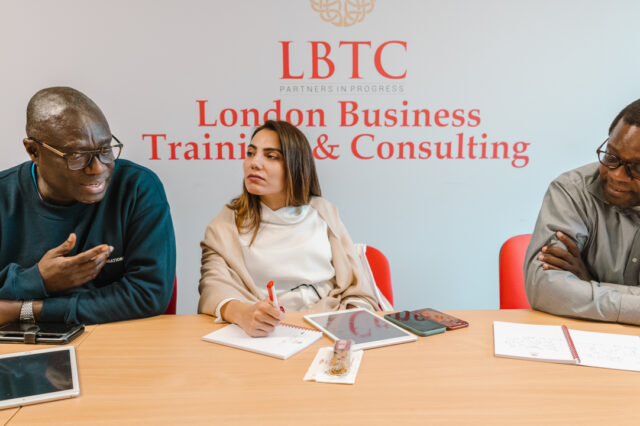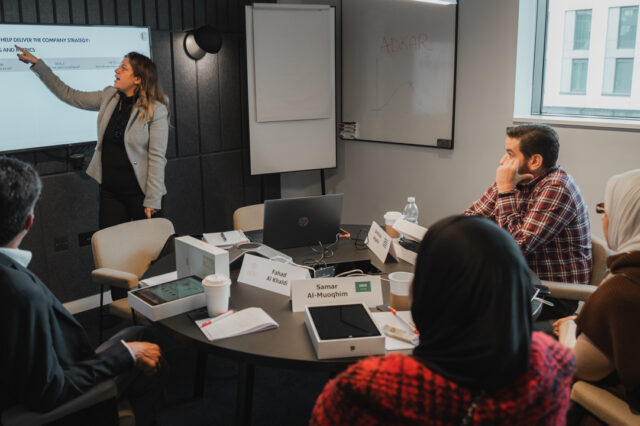Course Overview
This course is ideal for experienced strategists who wish to be updated on the most modern approaches to Strategic Management. It is designed for those with experience to have the opportunity to revise, refresh and confirm what they are doing is the best for their organization. This course incorporates the essentials of Strategic Management by enabling delegates to take an objective strategic overview, in order to identify strengths and weaknesses of a strategy: whether it is anticipated; being created or currently being implemented. Understanding where the organization is now is an essential basis for deciding the realistic ways to achieve the vision. Stakeholders need to be engaged and motivated and resources allocated according to need. Those unfamiliar with strategy creation will be given the comprehensive toolkit which is required to be robust, realistic and practical strategic managers. The course will highlight and develop the key management skills required for the role.
This course is also ideal for experienced strategists who wish to be updated on the most modern approaches to implementing a successful strategy in the short, medium and long term. It is designed for those with experience to have the opportunity to revise, refresh and confirm what they are doing is the best for their organization. This course highlights and gives practical tips on the crucial qualities and skills required to lead, manage and implement a successful strategy. The large majority of strategies fail, frequently during implementation. We address the importance of committed leadership, supported by and supporting robust management. The ability of organizations and individuals to adapt and change is now the norm – not the exception. So, we will analyse the on-going change from three perspectives: firstly, introducing a new strategy; secondly, adapting the strategy to changing circumstances and thirdly, reacting to abrupt and unexpected circumstances. We will analyse how to “think the unthinkable” and anticipate risks and crises, so that they can be professionally managed, when and if they arise.
The fundamental nature of organizations hasn’t changed, the pace of change is moving ever faster. In HR, as in many parts of the organization, we are being asked to achieve more with either the same resources or fewer. This is the time for you to be even more strategic in your outlook and actions. Getting the daily tasks done no longer guarantees employment for any of us. We have to think and act in a more thoughtful and strategic way to add value to our organization and work. This course will take you through the necessary steps to achieve this.
The course will wrap with a summary of the key learning points, followed by an action planning exercise with a view to apply the acquired knowledge and skills immediately upon your return to work. Post-course support is also available in relation to the implementation of your action plan, up to six (6) months following course completion.
Agenda
Strategic Analysis
- Ten-step strategic planning process
- Current organizational structure, characteristics and context
- Internal analysis
- External analysis
Developing the Strategic Plan
- Agreeing, understanding and communicating the vision
- Evaluating the alternative strategic approaches
- Deciding the most appropriate way and why
- Create the plan to achieve vision
Stakeholder Identification, Analysis and Engagement
- Identify all stakeholders
- Stakeholder interest and influence
- Consult and involve with stakeholders appropriately
- Formulate a comprehensive plan to involve, motivate and engage
Resource Assessment and Allocation
- Assessment of available resources
- Structured evaluation of the groups of resources required
- Allocation of resources efficiently and effectively
- Getting the most out of each resource
Strategic Leadership and Management
- The strategic planning cycle
- Why so many strategies fail and how to avoid the pitfalls.
- Adapting leadership styles to a multiplicity of situations.
- Building trust and credibility as the path to success.
Strategic Change Management
- Change is the norm not the exception
- Create an organizational culture to embrace change positively.
- Framework for leading and managing positive and creative change.
- Strategic Review and Recallibration
- Monitor and measure short, medium and long-term results against objective targets.
- Analyse the impact of any changes on the internal and external planning assumptions and changing circumstances.
- Reacting to market disruptors
- Revise, respond and readjust the strategy and its implementation.
Strategic Risk Control and Crisis Management
- Risk management cycle
- Identifying sources of risk and deciding which actions to take.
- Crisis reaction, control and response.
HR Strategy
- The strategic nature of HR
- HR Models – Strengths and Weaknesses
- The strategic business partner model
Organizational Development Strategy
- Organizational Development Activities
- Formulating and implementing OD strategy
- Culture Change
Knowledge Management Strategy
- The Two Types of Knowledge
- Knowledge Management toolkit
- Knowledge Management as part of Organizational Culture
Professional Self-Development
- The Leader Within
- Self-Coaching
- Personal Motivation to Change
Course Review
- Summary and recap of key learning objectives
- Action Planning
Target Audience
This course is suitable for a wide range of leaders and managers but will be of real value to:
- C-Suite Officers and Chairpersons.
- Board Members and Company Secretaries.
- Non-executive Directors
- Directors, Deputy Directors and Senior Managers.
- Heads of Departments
- Heads of Departments
- Risk Managers and Professionals.
- Legal and Compliance Managers and Professionals.
- Transformation Leaders
- Change Managers
- CSR and Sustainability Managers and staff.
- Community Relations Managers and Executives.
- Health, Safety and Environmental Managers and Officers.
- Managers and staff who wish to develop responsible Business Practices.
- Managers and staff concerned with influencing or implementing Corporate Strategies.
- Those who wish to capitalise on and grasp all Strategic Opportunities for their organizations
- Those who wish to promote the Strategic Success of their organization.
- All those involved in Strategy Creation, Leadership and Management.
- HR directors
- Heads of HR functions
- HR business partners
- Senior HR executives, managers, advisors and officers who wish to contribute to the development and implementation of HR strategy.
- Chief officers, Chairpersons, Board members, Heads of Departments, and all those at the highest levels of an organization interested in developing an in-depth knowledge of strategic HRM.
Learning Outcomes
Upon completion of this course, you will have an excellent grasp of how to implement a successful strategy including:
- The tools to enable you to analyse where an organization is currently positioned: structurally; internally and externally, as a strong foundation for effective Strategic Management.
- The importance of creating a vision and choosing the most suitable way for an organization to achieve it. You will have devised the foundations for developing a robust plan.
- The importance of stakeholders and how to harness their interest and influence in successful Strategic Management.
- The resources available and those required and how to allocate them to ensure they work to their maximum capacity and capability.
- Leadership which is committed, consistent and inspiring which is vital for Strategic Management Excellence.
- Recognition that “change” is now the new normal and that it needs to be incorporated into all strategic thinking as an integrated part of the process at three stages: creating and implementing the strategy; adapting it as it progresses; reacting to crises.
- Measuring and monitoring progress and results is essential for success, combined with flexibility and willingness to respond constructively to these.
- Risk and crises need to be planned for – “thinking the unthinkable” means that you will not be taken by surprise and can take immediate control.
- The strategic nature of HR.
- The process of formulating and implementing organizational development strategy.
- The meaning and significance of human capital management (HCM).
- The approaches to the development of knowledge management strategies.
- How to implement an Action Plan at your workplace using the knowledge and skills acquired through the course.
Course Dates
Spaces limited to NINE (9) delegates per course. Book Now to avoid missing out!
Similar Courses
Strategic Management Essentials
Duration: 5 days
Strategic Management Essentials Workshop
Duration: 3 days
Strategic Management Excellence
Duration: 5 days
Strategic Management Excellence Workshop
Duration: 3 days
HR Strategy Essentials
Duration: 5 days
HR Strategy Essentials Workshop
Duration: 3 days
HR Strategy and Advanced Strategic Management
Duration: 3 weeks







